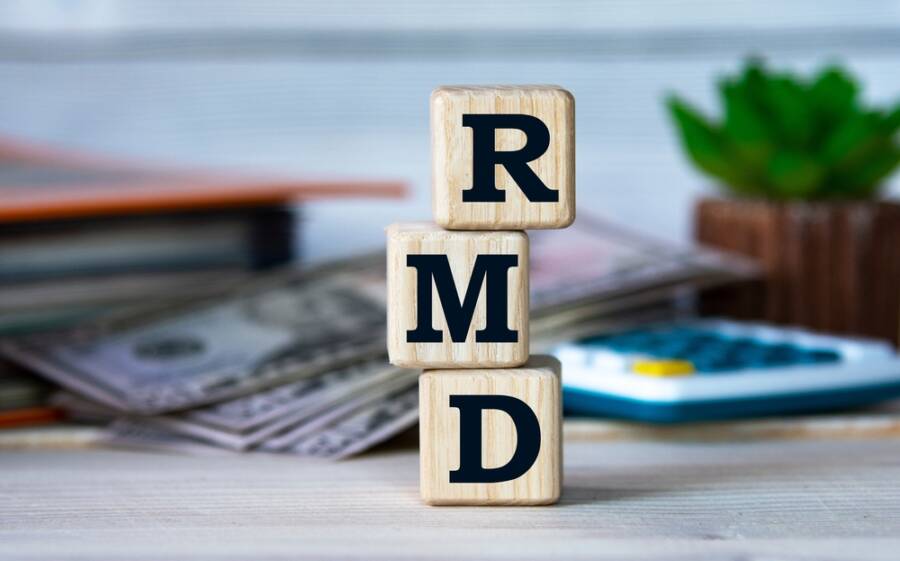Stop believing these retirement myths NOW!
Retirement is when you can finally bid farewell to the daily grind and enjoy the many fruits of your labor. But beware of standard rules of thumb masquerading as truth. No matter how often they’re repeated… these retirement myths can still be incorrect.
For instance, it might be comforting to believe that investing in your company retirement plan is all it takes to have enough money to retire or that Social Security will cover the rest of your life. But those numbers may not add up.
Maybe you bought into the “70% of pre-retirement spending” myth or the “save enough to cover 10-20 years” rule. Or you might believe in the safety of an all-bond/cash portfolio or that you can budget your retirement based on average market returns.
If you’re a victim of these retirement myths, we’re here to tell you the truth. Your retirement security could be in jeopardy. What you don’t know can hurt you in planning.
Below, we’ll discuss the most common misconceptions and the facts you need to overcome them. Remember, you could sabotage your golden years if you believe any of these 5 retirement myths.

Retirement myth: EVERYONE should take social security when they’ve reached the full retirement age
Even though waiting until your full retirement age to claim your Social Security benefits can mean you’re getting higher monthly payments, there are better choices than this option. You might have unique financial goals and circumstances that require a different approach.
Think about aspects like other sources of retirement income, your overall financial health, and your life expectancy when determining when to claim Social Security.
Deferring your benefits can deliver a guaranteed income boost, which may benefit those who want to maximize their retirement income.
Suppose you can’t work past age 62 and need the Social Security income to fight accelerated withdrawals and protect you from unforeseen circumstances, like medical expenses. In that case, taking your Social Security early might make sense.
While Social Security provides vital income during retirement, it’s not intended to be your only source of support. The average Social Security benefit is mediocre at best, and relying exclusively on it could leave you with an insufficient income to maintain your lifestyle.
Your plan should incorporate drawing on your additional retirement savings to complete your Social Security benefits. Continuing to work may sound appealing to some people, but it’s only sometimes within your control.
Caregiving responsibilities, health issues, or unexpected job loss can force an early retirement. Planning for your golden years means preparing for the possibility of not being able to work as long as you’d anticipated.
Your financial planner should advise you when to draw on Social Security and how to balance your other income to meet your needs.
Retirement myth: You’ll pay less taxes once you retire
It’s a common assumption that your tax bill will drop once you retire. However, this only sometimes holds true. Your tax situation in retirement could become more complicated and might not necessarily result in lower taxes.
For instance, some believe they’ll pay fewer taxes because their income will be lower. Even though this may be accurate for some retirees, others might face unexpected tax liabilities because of Required Minimum Distributions from retirement accounts or any other sources of revenue.
As a high-net-worth individual, you likely have significant retirement savings in tax-deferred accounts like your IRAs and 401k. When you begin to withdraw from these accounts, you’ll owe income tax on those distributions. This can lead to a huge tax liability.
To navigate this retirement myth, consider a diversified tax strategy that includes a mix of tax-free, tax-deferred, and taxable accounts.
A financial planner can help you with a tax-efficient drawdown method, which optimally aims to maximize your after-tax assets by strategically making upfront tax payments.
This can aid you in optimizing your tax situation in retirement and has the potential to reduce your overall tax burden.

Retirement myth: You don’t have any control over your required minimum distributions
Required minimum distributions are a crucial part of retirement planning. And comprehending how they’re calculated and their potential impact is vital for seniors.
RMDs are required withdrawals from tax-deferred retirement accounts, like a 401k or traditional IRA, and they play a huge role in ensuring that seniors use their retirement savings as intended. These distributions are required by the IRS once you reach the age of 72.
Their purpose is to ensure you don’t indefinitely postpone paying taxes on your retirement savings. Instead, you must withdraw a portion of your account balance annually, which is taxed as ordinary income, and the withdrawn amount is included in your annual taxable income.
In some cases, this could also trigger taxes on surcharges on Medicare premiums or Social Security benefits. The balance directly influences the RMD amount in your tax-deferred retirement accounts.
An increased account balance will result in a larger RMD, which signifies a higher taxable income. This could push you into a higher tax bracket. RMDs can seem severe, but high-net-worth people can exercise some authority over them.
This is where strategic planning can be a huge help. You can work with a financial advisor and a tax planning expert on a tax-efficient drawdown strategy using tactics such as charitable contributions or Roth conversions, which can help predict some of these consequences and decrease the impact of RMDs on your taxable income.
Retirement myth: You should ALWAYS remain in the lowest possible tax bracket
While it might be true that staying in the lowest possible tax bracket can be an appealing strategy, this method may turn out to be disappointing if you’re considering a multiyear strategy, where incurring increased taxes in a given year can lead to a few years of potentially decreased taxes.
Paying at a higher rate in certain years might result in a lower overall tax burden over time. Aiming to always stay in the lowest tax bracket can limit your financial flexibility and result in neglected opportunities for tax-efficient planning.

Retirement myth: You’ll have less expenses
Many assume that they’ll have the same lifestyle in retirement as they did during their working years. But, retirement often includes a shift in one’s spending habits. Even though certain expenses will obviously decrease, others rise into and throughout your golden years.
High-net-worth individuals might continue to maintain a comfortable lifestyle, often including hobbies, travel, and leisure activities. Also, healthcare expenses increase with age and grow faster than annual inflation. And planning for long-term care costs may be required.
These planned and unplanned expenses can quickly counteract or outweigh child care, housing, community, or work-related cost reductions.
In some instances, your costs may eventually drop to the point where your household no longer needs to remove funds from your investment accounts.
In these cases, you might be forced to withdraw funds from tax-deferred accounts to fulfill the legal requirement and then invest funds in a taxable account, which results in an inadequate withdrawal strategy.
This is another instance where a tax-efficient drawdown strategy can help you dodge this scenario. Regardless, it’s essential to consider that retirement can span quite a few decades.
Inflation can deteriorate the purchasing power of your savings over time and may significantly influence your retirement income.
With your risk tolerance in mind and goals, it’s crucial to subsidize in investments that can potentially outpace inflation and regularly check your retirement plan with your financial advisor to make necessary changes.
We hope that debunking some retirement myths can help you smoothly navigate your golden years. If you found this article helpful, though, Retirement In USA has many more useful reads for you. For instance, we highly recommend: 10 Longevity Secrets No One Tells You About


















2 Responses
Hah-Hah: you forgot Myth Number Seven: “The Government will take care of your Interests”
2t5xva